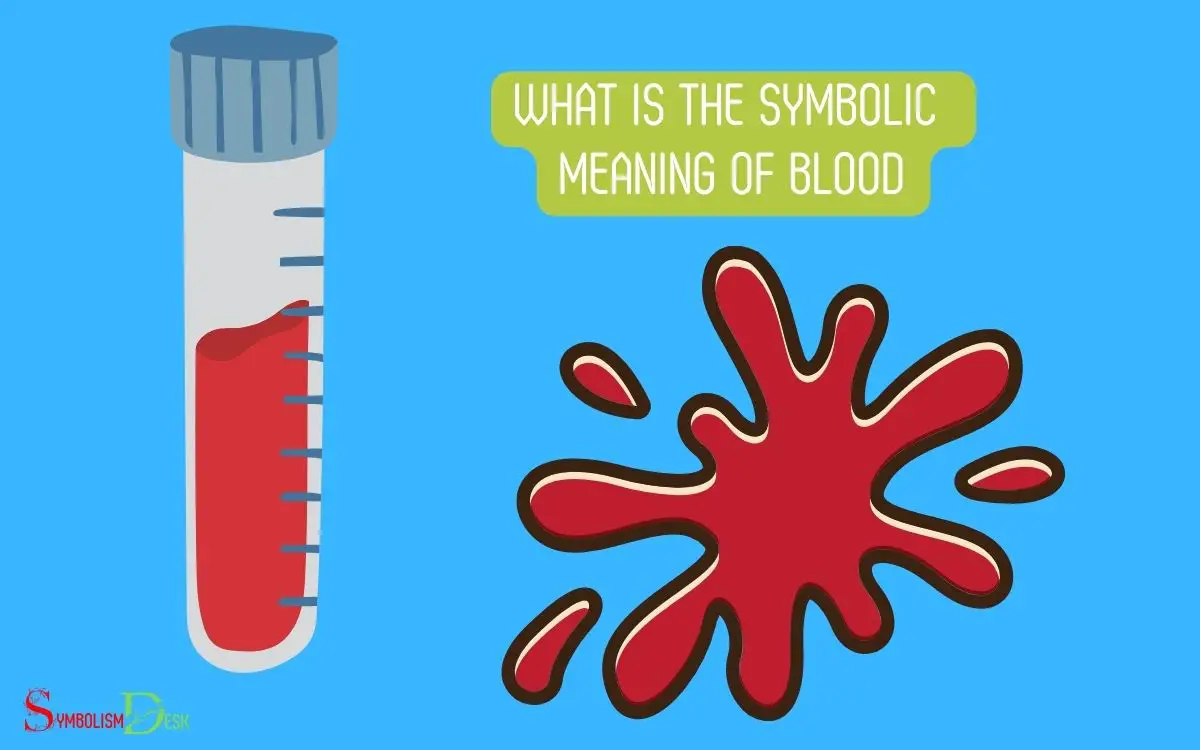What Is the Symbolic Meaning of Blood? Life!
The symbolic meaning of blood transcends various cultures, representing life, vitality, and change. It is frequently associated with both mortality and rebirth, embodying paradoxical themes in religious rites, cultural traditions, and mythologies.
Blood symbolism often includes:
- Life and Health: Blood is universally recognized as a vital fluid, essential for life.
- Sacrifice: Many cultures have used blood in sacrificial rituals to appease gods or spirits.
- Kinship and Heritage: Bloodlines denote familial ties and inheritance.
- Passion and Emotion: Blood can represent intense emotions like love or anger.
- Transformation: Menstrual blood and wounds signify cycles of change and renewal.
For example, in Christian tradition, the blood of Christ symbolizes sacrifice and salvation.
Blood’s symbolism is as complex as it is ancient, encapsulating the essence of existence and the human condition.

Key Takeaway
Historical and Cultural Significance
Blood has held significant historical and cultural importance across various civilizations and societies.
In ancient Rome, blood was used in religious ceremonies and seen as a symbol of life force. In Mayan culture, bloodletting was a ritualistic practice to communicate with the gods.
The Egyptians believed that blood held the power of the soul and used it in their religious rites.
In many societies, blood ties were considered sacred, forming the basis for familial and societal structures.
Furthermore, blood has been a powerful symbol in literature and art, representing life, death, and the human experience.
Its significance has also been evident in medical practices and beliefs about health and well-being.
The historical and cultural significance of blood continues to influence various aspects of human life and thought.
Religious and Mythological Interpretations
The symbolic meaning of blood in religious and mythological contexts holds profound significance across diverse cultures and belief systems.
In religious and mythological interpretations, blood is often associated with sacrifice and atonement.
Many religious traditions view blood as a symbol of sacrifice and atonement, representing the giving of life for the redemption of sins.
In addition, blood is also associated with life and vitality in various mythological beliefs. It is considered the essence of life and vitality, symbolizing the life force that sustains existence.
Furthermore, blood is connected to cleansing and purification in some religious rituals. These rituals involve the use of blood for cleansing and purification, signifying its purifying and transformative qualities.
These interpretations of blood in religious and mythological contexts offer deep insights into the cultural and spiritual significance attributed to this vital substance.
Symbolism of Life and Vitality
Symbolizing life and vitality in various cultural and mythological beliefs, blood represents the essential force that sustains existence.
In many traditions, blood is seen as the essence of life itself, carrying the vital energy that sustains living beings.
It symbolizes the very essence of life, serving as a powerful reminder of the life force that flows through all living creatures.
Blood’s association with vitality is deeply rooted in ancient beliefs and continues to hold symbolic significance in many cultures today.
Its representation of life and vitality is a universal concept that transcends time and place, emphasizing the fundamental importance of blood in sustaining life.
This symbolism underscores the profound significance of blood as a symbol of life and the essence of vitality in various cultural and mythological contexts.
Blood as a Metaphor for Death
In many cultural and mythological beliefs, blood serves as a metaphor for death, representing the inevitable conclusion of life’s vitality and the transition to the afterlife.
This metaphorical association with death is deeply rooted in various societies and has several symbolic implications.
- Blood as the essence of life: In death, the absence of blood signifies the departure of life force, emphasizing the finality of mortality.
- Blood rituals and sacrifices: Many cultures use blood in rituals or sacrifices associated with death, symbolizing a spiritual connection between the living and the deceased.
- Blood ties and ancestry: Bloodlines and familial connections are often linked to death, signifying the continuation of lineage and the passage of legacy beyond one’s life.
These symbolic representations of blood in relation to death underscore its profound significance across different cultural contexts.
Is Fire Also Symbolic of Life, Similar to Blood?
Fire holds a powerful symbolic meaning of fire in many cultures. Just as blood represents life and vitality, fire can also symbolize life, passion, and transformation. Its ability to both create and destroy makes it a potent symbol of the cycle of life and the energy within all living beings.
Transformation and Renewal Symbolism
Symbolic of both death and renewal, blood plays a pivotal role in representing the cyclical nature of life and the potential for transformation.
In various cultures and literary works, blood is often used as a symbol of transformation and renewal. It’s seen as a source of vitality and regeneration, highlighting the idea of new beginnings and rebirth.
The shedding of blood can represent the sacrifice necessary for growth and change, while also symbolizing the potential for renewal and transformation.
Additionally, blood’s association with life and vitality underscores its role as a symbol of transformation, as it represents the continual cycle of life, death, and rebirth.
This symbolism serves as a powerful reminder of the ever-changing nature of existence and the potential for personal and spiritual growth.
Conclusion
Blood holds a deep symbolic meaning across various cultures and religions, representing life, vitality, and the cycle of death and renewal. It’s often seen as a powerful metaphor for the essence of life itself. The color blue also carries its own symbolic significance in many cultures, often representing spirituality, wisdom, and protection. When exploring blue’s symbolic significance in connection with blood, it can evoke themes of healing, tranquility, and the connection between the physical and spiritual realms. In some traditions, the combination of blue and blood may represent the interplay between the body and the soul, and the balance between earthly existence and transcendence.
As the saying goes, ‘blood is thicker than water,’ highlighting the strong and enduring connections that blood represents in both physical and metaphorical senses.
Its significance continues to influence art, literature, and human understanding of the world.






